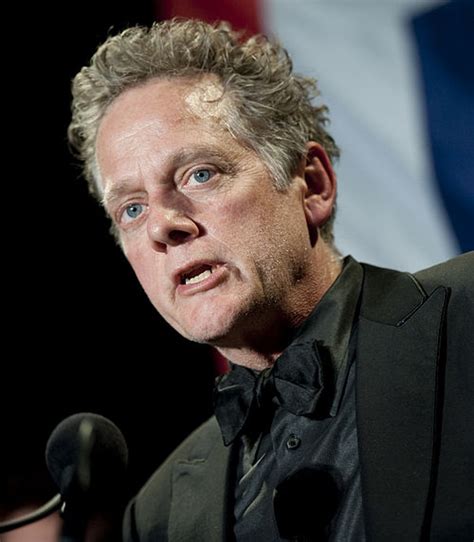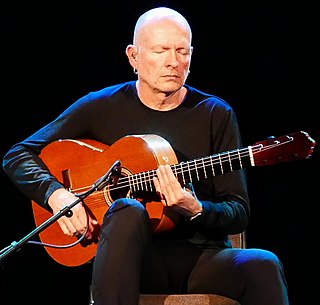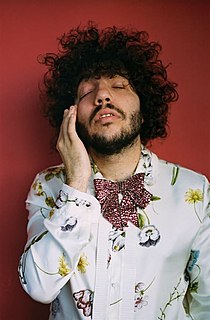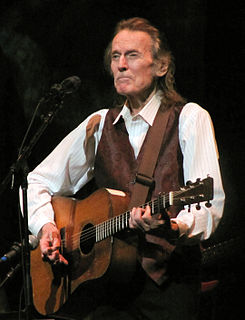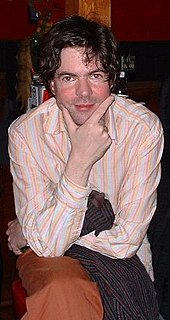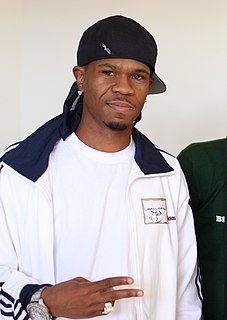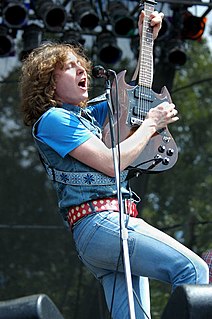A Quote by Brett Eldredge
I think when you sign a recording deal, you think, 'I'm going to put out a song and have a hit right away. I'll be a giant superstar. I can take over the world now.' But I put out a song, and it did OK. It wasn't like leaps and bounds.
Related Quotes
But once you've made a song and you put it out there, you don't own it anymore. The public own it. It's their song. It might be their song that they wake up to, or their song they have a shower to, or their song that they drive home to or their song they cry to, scream to, have babies to, have weddings to - like, it isn't your song anymore.
Like the Birth Of Venus, the song [Yello "oh, Yeah"] denotes the birth of the bro. The song just reminds me of bros looking out over lowered Ray-Bans. It birthed a negative sexual revolution. I was going to a lot of bondage clubs at the time and they did play this song. The song I associate more is that horrible Enigma song with the Gregorian chant. There's something good buried in that song and I might not hate it as much if I hadn't been a sex worker.
When I first started writing songs, I was probably about ten or twelve years old, and the first thing you think as a songwriter is, 'Can this be a hit? Can this come out, and people are going to hear the song and like the song, and then they're going to like you, and you'll get famous and rich?' That hasn't changed a bit.
If you read about a tree, and there is a description, you have to grow that tree in your mind. So that's an active way of looking at media, whereas a movie or a TV will be passive, because they are showing you the tree. In the same way, when somebody sings a song for you, those words get so much in the foreground, that even if you take a minor key of music and then put like happy lyrics to it and people think it's a happy song. So, in a song, you are told what to feel, whereas, in an instrumental music, you get as much out of it as you are willing to put into it.
If you're recording the song on your four-track in your kitchen, when you finished writing the song, you're recording, and it's cool, and honor that. And maybe that's the version that should be released. And if you're recording the song again, it shouldn't be because there's a version you love that you're chasing. It should be because "You know what? I made a recording, but I don't love it emotionally." So, okay, then record again. And be in it and take advantage of the buzz and energy of "I'm getting to record right now!" It's such a beautiful and cool privilege.
All the carbon copies, the stuff that the industry puts together, it's not selling if you pay attention and look at the charts. The stuff that they put together, these hits that just go out, it doesn't sell. It doesn't have a core fan base of fans that dedicatedly watch their life. It's just a song, another song, another hit song, a one-hit wonder. It doesn't sell. It doesn't last.
I've been on a real Credence Clearwater kick. I've been collecting their albums on CD -- right now I really like 'I Put a Spell on You.' I don't know who actually wrote it; it might be a traditional, or like, an old blues song, I haven't looked in the liner notes, but it's the first song on their first album. I love all the hits; I mean @#$%&, I like every one of them. I think my favorite song by John Fogerty is 'Have You Ever Seen the Rain?' They're my favorite American band of all time, totally.
I take things a little bit more critically now, like, "What did I think I was saying in that song? What is this song about?" I thought the lyrics were incredibly descriptive, and now they sound really cryptic and weird. I'd like to also think that when I listen to songs from Something About Airplanes that I'm proud of my development as a writer. I don't think I was doing anything poorly at that time, but I can certainly see how my writing has changed.





